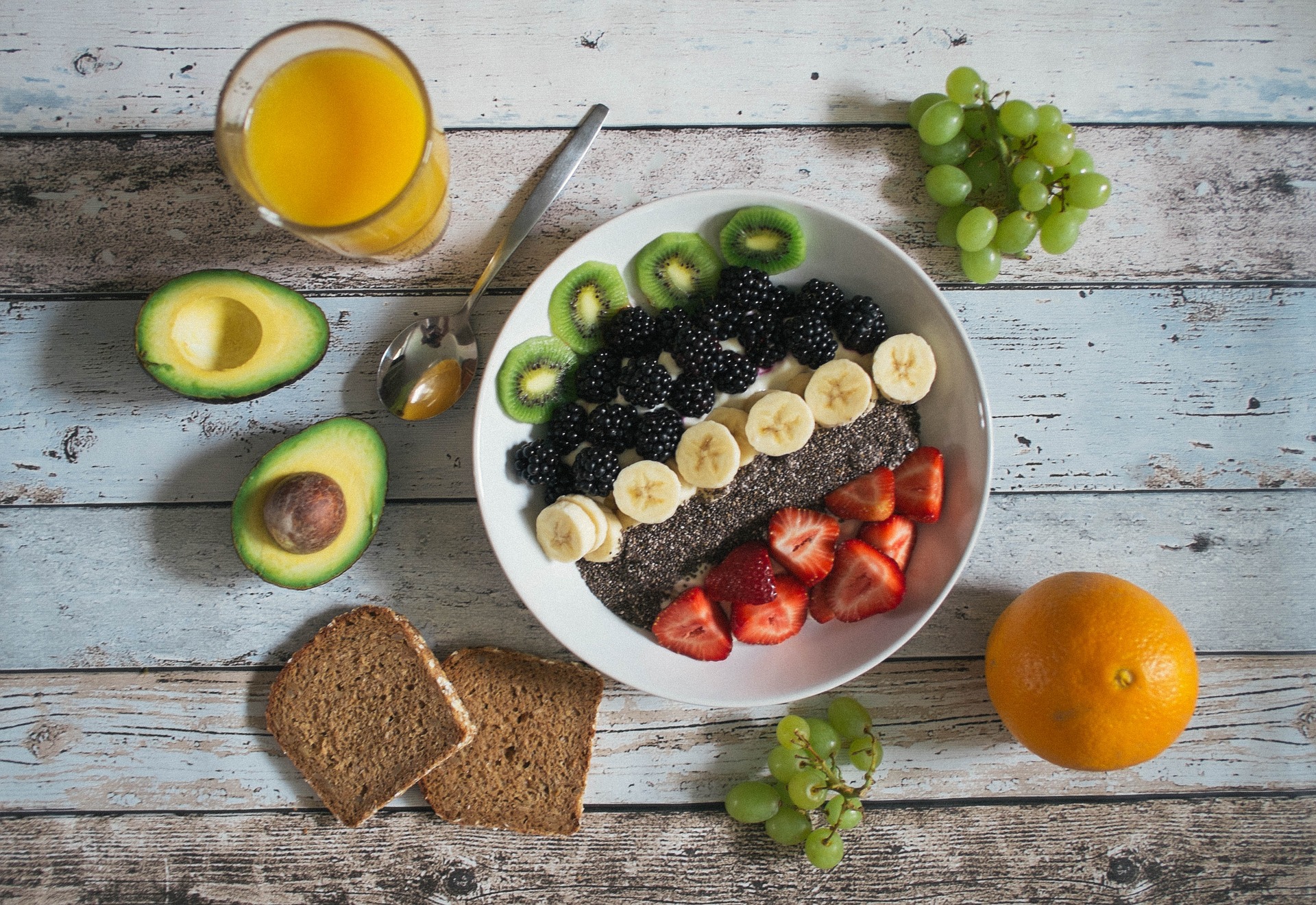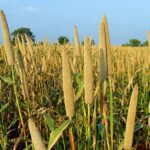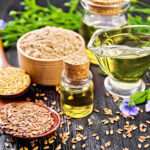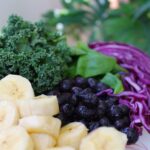Introduction:
As the winter chill sets in, so does the season of sniffles and coughs. The drop in temperature not only brings cozy sweaters and holiday cheer but also an increase in the risk of colds and flu.The importance of fortifying our immune systems cannot be overstated. Strengthening the immune system becomes crucial during these colder months. Fortunately, there are various winter immunity boosters that can help fortify your body’s defenses and keep you healthy throughout the season.
Vitamin C Excellence:
The pivotal role of vitamin C in bolstering immunity is well-established. While citrus fruits like oranges and grapefruits are commonly associated with this vital nutrient, consider incorporating guavas into your winter diet. Scientific studies affirm the efficacy of vitamin C in reducing the severity and duration of respiratory infections.
Citrus Marvels:
When it comes to vitamin C, citrus fruits take the lead. Oranges, grapefruits, lemons, and limes are not merely juicy delights but also reservoirs of this essential nutrient. Vitamin C, also known as ascorbic acid, plays a multifaceted role in immune health. It stimulates the production and function of white blood cells, the body’s defense troops, and enhances the production of antibodies, vital for neutralizing pathogens.
Beyond Citrus: The Guava Secret:
While citrus fruits bask in the limelight, guavas quietly emerge as unsung heroes of vitamin C abundance. Guavas, particularly the pink-fleshed variety, surpass many citrus fruits in vitamin C content. This tropical fruit not only offers a delightful twist to your winter fruit bowl but also delivers a robust dose of antioxidants, aiding in immune function and overall well-being.
Red Bell Peppers: The Colorful Reservoir:
Red bell peppers, with their vibrant hue, are a rich source of vitamin C. In fact, they contain more vitamin C than most citrus fruits. Beyond immunity, the antioxidants in red bell peppers contribute to skin health and collagen synthesis, further emphasizing their role in winter wellness. Incorporate these colorful gems into stir-fries or enjoy them raw for a crisp and nutritious vitamin C boost.
Strawberries: Nature’s Sweet Immunity Treat:
Strawberries not only tantalize your taste buds but also provide a sweet dose of vitamin C. These berries are not just a dessert delight; they contribute to a robust immune response. The combination of vitamin C and other antioxidants in strawberries supports the body’s ability to combat oxidative stress and inflammation, crucial factors in maintaining immune resilience.
Kiwifruit: The Fuzzy Green Powerhouse:
Kiwifruit, with its unique flavor and texture, stands out as a vitamin C powerhouse. Consuming kiwi regularly has been associated with a reduction in the severity and duration of upper respiratory tract infections. Beyond vitamin C, kiwifruit offers a blend of nutrients and fibers, promoting digestive health and overall immune resilience.
Dark Leafy Greens: A Symphony of Nutrients:
Beyond being a canvas for salads, dark leafy greens such as kale and spinach offer a symphony of nutrients crucial for immune health. Rich in beta-carotene, these greens contribute to the production of vitamin A, a cornerstone of immune function. Research suggests that maintaining optimal vitamin A levels is linked to a decreased susceptibility to infections. Elevate your winter culinary experiences by incorporating these greens into nourishing soups and stews.
Allicin Power from Garlic and Onions:
Delving into the realm of antimicrobial wonders, garlic and onions take center stage with their allicin content. Allicin, a biologically active compound, has demonstrated potent antimicrobial properties in various studies. Beyond enhancing flavor profiles, incorporating garlic and onions into your winter recipes becomes a strategic move in fortifying your body against common winter ailments.
The Alchemy of Allicin:
At the heart of garlic and onions lies a potent compound known as allicin. This organosulfur compound is released when these aromatic bulbs are crushed or chopped, unlocking a cascade of biochemical reactions. Allicin is revered for its antimicrobial properties, making garlic and onions not only culinary delights but also powerful allies in the battle against microbial invaders.
Antibacterial Marvel:
Allicin is a natural antibacterial agent with a broad spectrum of activity. Research suggests that it can inhibit the growth of various bacteria, including strains that may cause common infections. By disrupting bacterial cell membranes and interfering with their enzymatic processes, allicin showcases its prowess as a formidable antibacterial force.
Antiviral Guardian:
Beyond bacteria, allicin demonstrates antiviral properties that are particularly relevant during the winter months when viral infections abound. Studies have shown that allicin may inhibit the replication of certain viruses, including those responsible for respiratory infections. Incorporating garlic and onions into your winter diet can act as a proactive measure against viral threats.
Immune Modulation:
Allicin’s impact extends beyond its direct antimicrobial effects. It has been shown to modulate the immune system, enhancing the activity of immune cells. By supporting the body’s natural defense mechanisms, allicin contributes to a more robust and responsive immune system, better equipped to fend off infections.
Cardiovascular Benefits:
Allicin’s benefits extend to cardiovascular health. It has been associated with improvements in cholesterol levels and blood pressure, contributing to overall cardiovascular well-being. As heart health is intricately linked to immune function, the multifaceted benefits of allicin make garlic and onions valuable additions to a winter wellness regimen.
Synergistic Nutrient Composition:
Garlic and onions aren’t just carriers of allicin; they boast a rich nutrient profile. Both are excellent sources of vitamins, minerals, and antioxidants, which collectively support overall health. The combination of allicin’s antimicrobial properties and the diverse array of nutrients in garlic and onions creates a holistic approach to fortifying the body against seasonal challenges.
Culinary Versatility:
Incorporating garlic and onions into your winter meals is not only a health-conscious choice but also a culinary delight. These aromatic ingredients add depth and flavor to a myriad of dishes, from soups and stews to stir-fries and roasted vegetables. Embrace their culinary versatility while reaping the immune-boosting benefits of allicin.
Probiotics: Guardians of Gut Health:
The intricate connection between gut health and immune function is underscored by the benefits of probiotics. Probiotics are beneficial bacteria that play a pivotal role in maintaining a harmonious balance within this microbial landscape. This delicate balance is not only crucial for digestive health but also forms the cornerstone of a resilient immune system.Research consistently supports the role of probiotics in modulating immune responses, presenting a compelling case for integrating these foods into your winter diet.
Yogurt: A Time-Honored Probiotic Haven:
Yogurt has long been celebrated as a probiotic-rich food. It contains strains of bacteria such as Lactobacillus and Bifidobacterium, known for their positive effects on gut health. Regular consumption of yogurt can contribute to the replenishment of beneficial bacteria, fostering an environment conducive to optimal digestive function and immune modulation.
Kefir: Probiotic Diversity in a Glass:
Kefir, a fermented milk beverage, goes a step further by offering a more diverse array of probiotic strains compared to yogurt. It typically contains beneficial bacteria and yeast, contributing to a richer microbial community in the gut. Studies suggest that kefir consumption may positively influence immune responses, making it a valuable addition to your winter wellness repertoire.
Kimchi: Spiced Fermentation Elegance:
Kimchi, a staple in Korean cuisine, is another fermented delight rich in probiotics. Comprising vegetables, mainly cabbage and radishes, and seasoned with a blend of spices, kimchi offers a symphony of flavors while introducing beneficial bacteria to the gut. Beyond its culinary allure, kimchi has been associated with improvements in gut health and immune function.
Miso: Umami-Rich Probiotic Paste:
Miso, a traditional Japanese seasoning, is crafted through the fermentation of soybeans, rice, or barley. The resulting paste introduces beneficial bacteria to the gut, promoting digestive health. Additionally, miso’s umami-rich profile adds depth to soups and stews, making it a versatile and flavorful means of incorporating probiotics into your winter culinary endeavors.
Supplements: Tailoring Probiotic Support:
While fermented foods are excellent natural sources of probiotics, supplements offer a more concentrated and tailored approach. Probiotic supplements come in various formulations, each containing specific strains of bacteria. Choosing a supplement with a diverse array of strains can provide targeted support for immune health. It’s advisable to consult with a healthcare professional to determine the most suitable probiotic supplement for your individual needs.
Herbal Elixirs: Ginger, Elderberry, and Beyond:
Elevate your winter beverage choices beyond mere warmth by embracing herbal teas infused with immune-boosting herbs. Ginger, revered for its anti-inflammatory properties, and elderberry, renowned for its antiviral effects, stand out among the herbal pantheon. Rigorous studies underscore their efficacy in preventing and alleviating symptoms of respiratory infections, making them indispensable additions to your winter wellness routine.
Ginger: The Anti-Inflammatory Warrior:
Renowned for centuries for its medicinal properties, ginger stands out as a powerful anti-inflammatory herb. Its active compound, gingerol, has been extensively studied for its ability to reduce inflammation, oxidative stress, and the risk of chronic diseases. In the context of winter wellness, ginger can provide relief from respiratory symptoms, making it a valuable addition to herbal teas for immune support.
Elderberry: Antiviral Emissary:
Elderberry has gained popularity for its potent antiviral properties. Rich in flavonoids, particularly anthocyanins, elderberry has demonstrated effectiveness against influenza viruses. Studies suggest that elderberry can inhibit viral replication and modulate the immune response, making it a strategic ally during the winter months. Incorporating elderberry into herbal elixirs can be a flavorful and immune-boosting choice.
Chamomile: Calming the Immune Storm:
Beyond its reputation as a calming bedtime tea, chamomile possesses anti-inflammatory and antioxidant properties. Its flavonoids, such as apigenin, contribute to immune modulation. Chamomile can be a soothing addition to herbal blends, offering not only immune support but also relaxation—an essential component of overall well-being during the winter season.
Turmeric: Curcumin’s Immunomodulatory Dance:
Turmeric, a golden-hued spice, owes its medicinal prowess to curcumin. This compound has been extensively studied for its immunomodulatory effects. Curcumin can modulate the activity of immune cells, enhance antibody responses, and exhibit anti-inflammatory actions. Incorporating turmeric into herbal elixirs adds not only a warm and earthy flavor but also a layer of immune resilience.
Hydration: Beyond Winter Warmth:
Amidst the allure of winter’s hot beverage offerings, the foundational importance of hydration remains unparalleled. Optimal hydration facilitates nutrient transportation, toxin elimination, and overall physiological balance, contributing significantly to immune resilience.
Cellular Hydration and Immune Vigilance:
Adequate water intake is the cornerstone of cellular function, including the immune cells that stand guard against invaders. Cells involved in immune responses, such as lymphocytes and macrophages, function optimally in a well-hydrated environment. Dehydration, on the other hand, can compromise the efficiency of these cells, potentially weakening your body’s defense mechanisms.
Nutrient Transportation:
Water serves as a conduit for the transportation of nutrients throughout the body. The immune system relies on an array of vitamins and minerals to function effectively. Ensuring proper hydration facilitates the seamless delivery of these essential nutrients, optimizing the immune response and enhancing your body’s ability to ward off infections.
Toxin Elimination:
The winter season, with its indoor confinement and increased exposure to germs, presents a higher risk of toxin buildup in the body. Hydration plays a crucial role in flushing out toxins through urine and sweat. By staying well-hydrated, you actively support the body’s natural detoxification processes, reducing the burden on your immune system and promoting overall health.
Conclusion:
As winter unfurls its icy tapestry, mastering your immune defense becomes a holistic journey. Through a meticulous integration of diverse and refined immunity boosters, backed by scientific validation, you pave the way for a robust winter wellness strategy. Embrace the intricacies of each nutrient, savor the rich tapestry of flavors, and embark on a winter season marked not only by festive cheer but by a profound sense of vitality and well-being.
FAQ’S
Why is immunity crucial during the winter months?
Immunity is vital in winter as the cold weather often brings an increase in respiratory infections. A robust immune system helps the body defend against seasonal threats such as colds and flu.
What are the key nutrients that boost immunity in winter?
Essential nutrients include vitamin C, vitamin D, zinc, and antioxidants. These nutrients play a crucial role in supporting immune function and combating infections.
How can vitamin C-rich foods enhance winter immunity?
Vitamin C is known to support immune cells and reduce the severity of colds. Citrus fruits, strawberries, and dark leafy greens are excellent sources of vitamin C that can be incorporated into your winter diet.
Why are probiotics important for winter immunity?
Probiotics support gut health, which is closely linked to the immune system. Foods like yogurt and fermented items help maintain a healthy balance of gut bacteria, enhancing overall immunity.
How do herbal teas contribute to winter immunity?
Herbal teas, infused with ingredients like ginger, echinacea, and elderberry, contain antioxidants and compounds that support the immune system. These teas provide a comforting and nourishing way to boost winter immunity.
What makes nuts and seeds immunity boosters in winter?
Nuts and seeds, such as almonds and sunflower seeds, are rich in vitamin E, an antioxidant that supports immune function. Including them in your winter snacks provides a nutrient-dense boost.
How does staying hydrated contribute to winter immunity?
Adequate hydration is essential for overall health and helps maintain optimal immune function. It supports the transportation of nutrients, elimination of toxins, and mucosal health.
Are there specific foods to avoid for maintaining winter immunity?
While no specific foods need to be avoided, it’s advisable to limit excessive consumption of sugary and processed foods. A balanced and nutrient-rich diet is key to supporting immunity.
Can winter immunity boosters be effective in preventing all illnesses?
While immunity boosters can enhance your body’s defenses, they are not a guarantee against all illnesses. A holistic approach, including a healthy lifestyle and hygiene practices, is essential for overall well-being during the winter months.
References:
https://www.researchgate.net/publication/286472438_A_review_on_nature’s_immune_boosters
https://www.health.com/food/health-benefits-oranges
https://www.urmc.rochester.edu/encyclopedia/content.aspx?contenttypeid=19&contentid=Garlic
https://www.ncbi.nlm.nih.gov/pmc/articles/PMC4006993/
https://www.health.harvard.edu/nutrition/the-health-benefits-of-3-herbal-teas









